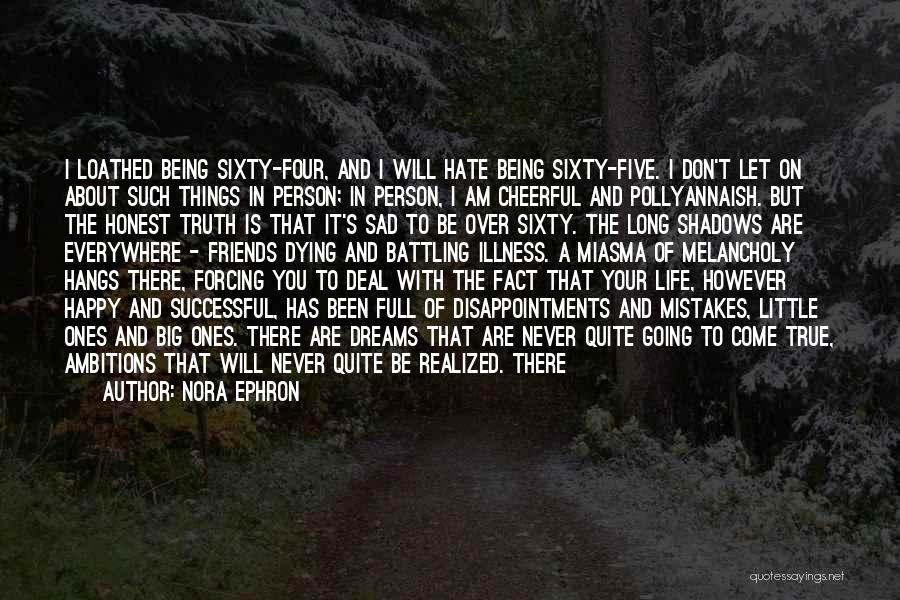Famous Sad Song Quotes & Sayings
Enjoy reading and share 2 famous quotes about Famous Sad Song with everyone.
Top Famous Sad Song Quotes

I loathed being sixty-four, and I will hate being sixty-five. I don't let on about such things in person; in person, I am cheerful and Pollyannaish. But the honest truth is that it's sad to be over sixty. The long shadows are everywhere - friends dying and battling illness. A miasma of melancholy hangs there, forcing you to deal with the fact that your life, however happy and successful, has been full of disappointments and mistakes, little ones and big ones. There are dreams that are never quite going to come true, ambitions that will never quite be realized. There are, in short, regrets. Edith Piaf was famous for singing a song called "Non, je ne regrette rien." It's a good song. I know what she meant. I can get into it; I can make a case that I regret nothing. After all, most of my mistakes turned out to be things I survived, or turned into funny stories, or, on occasion, even made money from. But — Nora Ephron

As the young husband and wife lay in each other's arms, each contemplating past, present, and future, Clint recognized the music as the adagietto from Gustav Mahler's fifth symphony. It was one of the most famous movements in the entire symphonic repertoire, but it was also one of the most debated. Mahler ostensibly composed the adagietto as a love song to his wife, Alma, but when played at the much slower tempo preferred by many conductors, the music instead evokes a feeling of profound melancholy. After almost eighty years, musicologists and aficionados still couldn't agree whether the music was supposed to be happy or sad, whether it was an expression of intense love and devotion or of unmitigated despair. Clint was struck by the irony that this music would be playing at this moment in his life, and his mouth curled into an ambivalent smile. Was he happy? Was he sad? Would he ever again be certain? — William T. Prince





